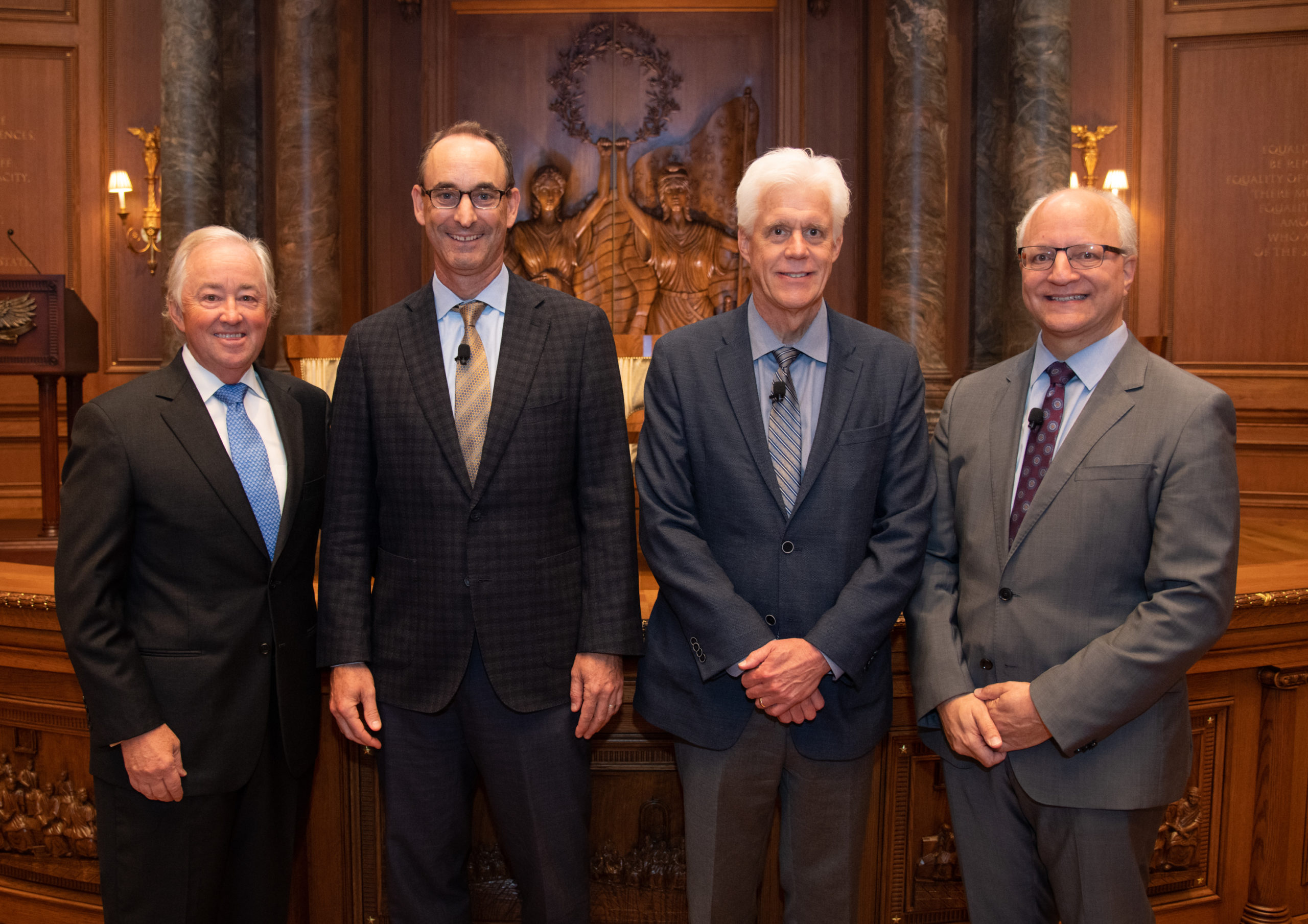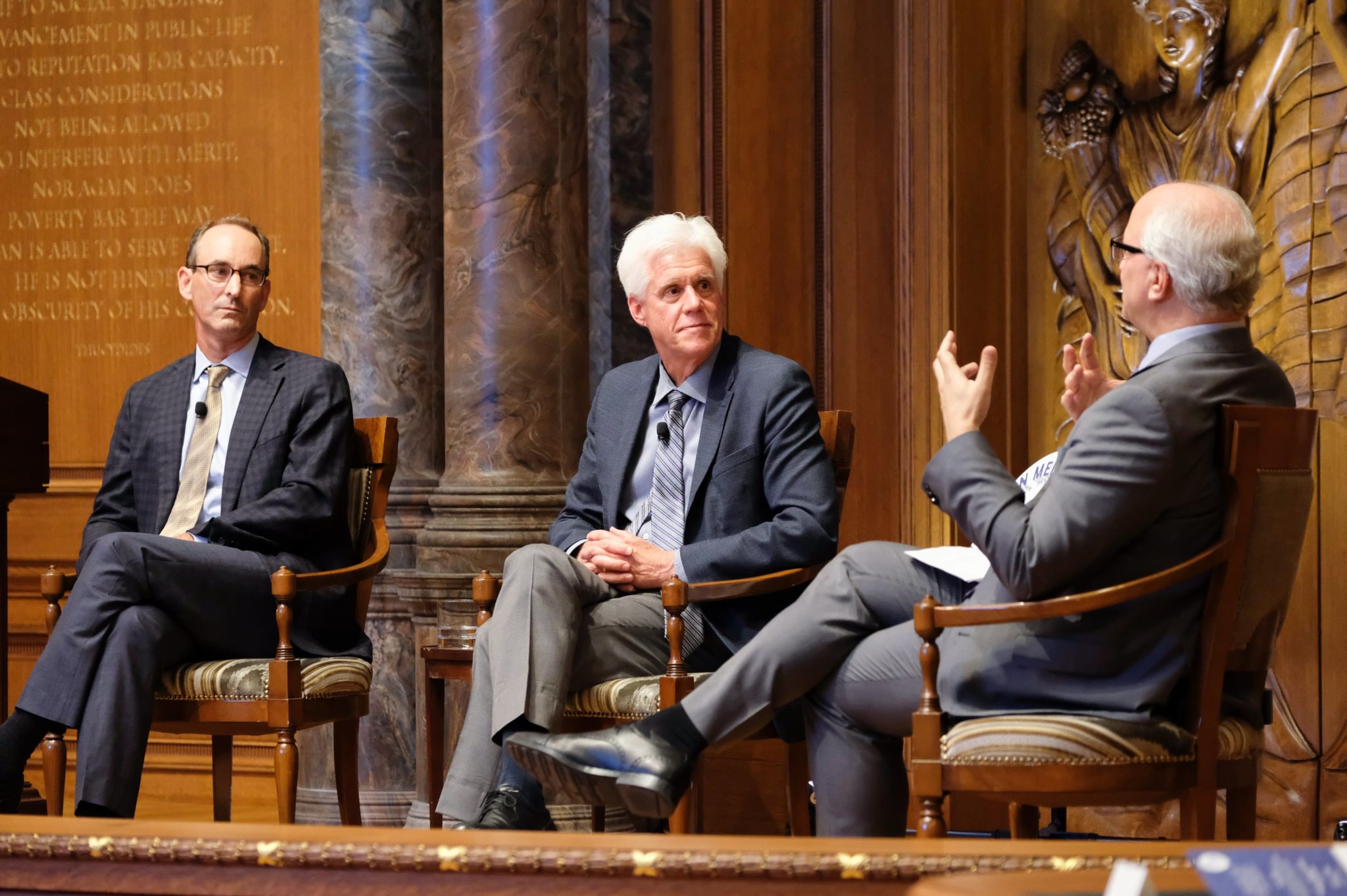On October 1, 2019, Southwestern Medical Foundation continued its ongoing speaker series, Leading the Conversation on Health, with a talk titled “On the Cusp: Innovation and Commercialization in Neurodegenerative and Neuromuscular Disease at UT Southwestern Medical Center.”

The discussion was moderated by William T. Dauer, M.D., who was announced in February as the inaugural director of the Peter O’Donnell Jr. Brain Institute at UT Southwestern. Dr. Dauer, a neurologist acclaimed for his research into dystonia and Parkinson’s disease, said
There is a unique bond between the community and this university that was really apparent to me even as I was interviewing here. And this partnership is really the secret weapon, if you will, of UT Southwestern to help us do things that are really difficult to do anywhere else.
William T. Dauer

The panel included Marc Diamond, M.D. and Eric Olson, Ph.D., who are both established researchers and directors at UT Southwestern. Both researchers are also on the cusp of major breakthroughs in their respective areas of research.
Dr. Diamond, who spoke at a Leading the Conversation on Health event in 2015, is one of the world’s leading researchers in Alzheimer’s and neurodegenerative diseases. In 2018, his lab discovered the “Big Bang” of Alzheimer’s – or the precise point at which a healthy protein becomes toxic, is hopeful that the scientific field has turned a corner in terms of finding treatment and prevention for Alzheimer’s.
…what’s interesting since coming to UT Southwestern, we’ve really been able to do a very, very deep dive into this problem with all the resources that were made available both to my own lab but also in my ability to recruit a group of investigators to the Center that I work in.
Marc Diamond, M.D., on his research to identify and decode the proteins that cause neurodegenerative diseases
Dr. Olson, whose research focuses on neuromuscular disease, met a significant milestone in 2018 in his investigation of the use of CRISPR gene editing technology. For the first time, scientists were able to use CRISPR technology to halt the progression of Duchenne muscular dystrophy in a large mammal (dogs). The study was published in Science and signals that a lifesaving treatment may be in the pipeline. Earlier in 2019, Olson’s Exonics Therapeutics was bought by Vertex Pharmaceuticals for future development of therapies. This is a major step toward human clinical trials.

This is the beginning of a revolution that’s going to change science and medicine.
Eric Olson, Ph.D., on CRISPR gene editing technology
Dr. Claire Aldridge, AVP of Commercialization and Business Development at UT Southwestern, was also introduced during the evening. Her role is within the Office for Technology Development, which collaborates with faculty to advance scientific discoveries from the lab into therapies and solutions that may benefit patients.
Today, UT Southwestern attracts almost $500 million a year in research. It is unquestionably the leading engine for commercialization opportunities in our region.
James Huffines, Chairman, Southwestern Medical Foundation
The North Texas community plays a vital role in advancing medicine. Leading the Conversation on Health aims to bring together the vision, inspiration, and talent that exists within our community today, connecting ideas to actions and fostering profound discussions around health. World-class cities distinguish themselves by continuously looking to the future, asking “What’s Next?” Southwestern Medical Foundation is proud to support our community by opening a dialogue that will sustain medical progress and innovation for decades to come.